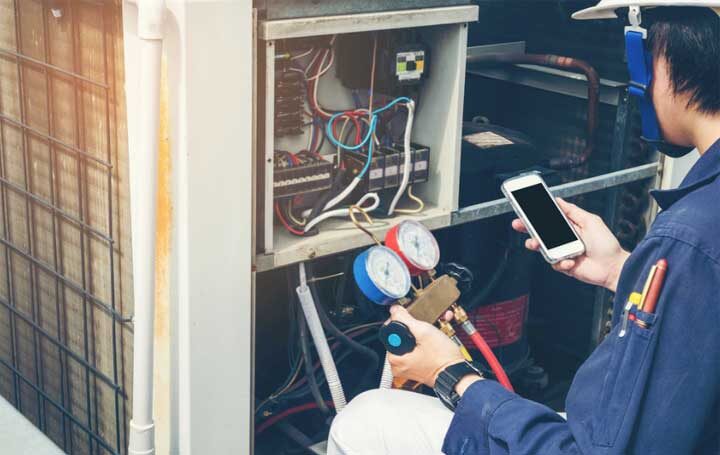Depreciate Your HVAC in Commercial Rental Real Estate
How to Depreciate HVAC in Commercial Rental Real Estate

This may surprise you, but federal tax code no longer requires you to depreciate the HVAC you invest in for your commercial rental property, Heating, ventilation, and air conditioning (HVAC) However, under the Tax Cuts and Jobs Act of 2018, Section 179 now offers full expensing for qualified property, including most HVAC systems Seattle. replacement costs can be significant expenses for businesses that own or lease real estate.
24 HOUR EMERGENCY SERVICE - CALL 253-852-8284
Historically, depreciating HVAC systems Seattle in commercial rental real estate was common practice Take advantage of this opportunity to maximize tax benefits and optimize your financial strategy in the commercial real estate market. Commercial Property. Commercial property, or non-residential property, is depreciated over 39 years. Assets mentioned above, such as HVAC. Key takeaway. The depreciation of HVAC systems is something that business owners should have.
Seattle Commercial Property Owners: Maximize Tax Savings with Section 179 on New HVAC Systems
Big Upgrades, Bigger Tax Savings: Expensing Your Seattle Commercial HVAC
The Tax Cuts and Jobs Act (TCJA) offers a game-changer for Seattle commercial property owners! Section 179 allows you to deduct the ENTIRE cost of a new, qualified HVAC system in the year it's installed, instead of depreciating it over decades. This can significantly boost your cash flow and lower your tax bill.
Good news for commercial property owners
The Tax Cuts and Jobs Act (TCJA) introduced a provision called Section 179 which allows for the full expensing of qualified equipment, including most new HVAC systems Seattle for commercial buildings. This means you can deduct the entire cost of the equipment in the year it's placed in service, rather than depreciating it over a longer period.
If you have a commercial real estate HVAC system, the tax life increases to 39 years. However, a standalone HVAC unit has a much lower tax
Here's a breakdown of the benefits:
- Faster Tax Savings: Get the tax deduction for the entire cost of the HVAC system upfront, not spread out over years.
- Improved Cash Flow: Reduces your taxable income in the year of installation, potentially impacting your cash flow positively.
- Simpler Tax Calculations: Eliminates the need for complex depreciation calculations related to the HVAC system.
Unlocking the Benefits of Section 179
- Faster Tax Relief: Deduct the entire cost upfront for immediate tax savings.
- Simplified Tax Prep: No more complex depreciation calculations over years.
- Improved Cash Flow: Free up cash previously allocated for depreciation.
Partner with a Tax Advisor to Maximize Benefits:
- Eligibility Confirmation: Ensure your Seattle HVAC system qualifies under Section 179.
- Strategic Planning: Optimize timing for installation and tax filing to maximize benefits.
Things to Consider
- Section 179 Expense Limits: Annual limits apply. Consult your tax advisor to see if your HVAC qualifies for full expensing.
- Used Equipment Applies Too: Even pre-owned Seattle HVAC systems can be expensed under Section 179.
Don't Miss Out on This Tax Advantage!
The change in tax law allows Seattle commercial property owners to save big on HVAC expenses. By understanding Section 179 and consulting with a tax advisor, you can significantly reduce your tax burden and keep more money in your pocket.
